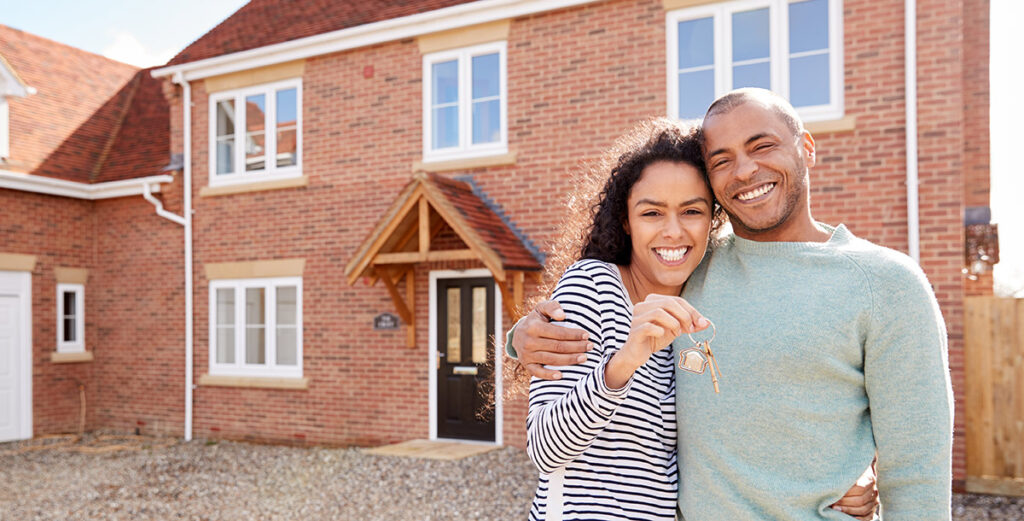Buying your first home is exciting—but it can also feel overwhelming, especially if you’ve had financial issues in the past or don’t have a credit score. At Clever Mortgages, we specialise in helping first-time buyers, including those who may have faced credit challenges, secure the right mortgage. Below, we answer some of the most common questions first-time buyers ask to help you get started on your homeownership journey.
- Can I Get a Mortgage If I Have Bad Credit or No Credit History?
Yes! Having bad credit or no credit history doesn’t automatically mean you won’t qualify for a mortgage. Some lenders specialise in helping people with less-than-perfect credit.
Your options may include:
- Specialist lenders who consider your individual circumstances.
- Improving your credit score before applying (more on that below!).
- How Much Deposit Do I Need as a First-Time Buyer?
Most lenders require at least a 5% deposit of the property’s value. However, a 10% or more deposit can open up better interest rates. If you’ve had financial issues, a higher deposit may improve your chances of approval.
There are also government schemes, like:
- Shared Ownership (buy a percentage, pay rent on the rest).
- First Homes Scheme (discounted homes for first-time buyers).
- Deposit Unlock (5% deposit mortgages backed by lenders).
- What Help Is Available for First-Time Buyers?
Aside from deposit schemes, there are other ways to make buying your first home easier:
- Lifetime ISAs (LISA) – The government adds 25% to your savings, up to £1,000 per year.
- Family Boost Mortgages – Some lenders allow family members to help without gifting a deposit.
- New Build Incentives – Some developers offer discounts or pay towards your deposit.
- How Can I Improve My Chances of Getting a Mortgage?
If you’ve had financial issues, here’s how to boost your mortgage approval odds:
- Check your credit score (use CheckMyFile as it cover all 3 agencies, Experian, Equifax, or TransUnion).
- Register on the electoral roll – Lenders use this to verify your identity.
- Clear outstanding debts or set up payment plans.
- Avoid new credit applications before applying for a mortgage.
- Save for a larger deposit if possible, to access better deals.
- How Much Can I Borrow?
This depends on:
- Your income (including salary, bonuses, and self-employed earnings).
- Your outgoings (credit commitments, childcare, and bills).
- Your credit score and history.
Most lenders will lend 4 to 4.5 times your annual income, though there are some lenders who may be more flexible.
- What Are the Costs Involved in Buying a House?
It’s not just your deposit—you should budget for:
- Mortgage fees (arrangement fees, valuation fees, broker fees).
- Solicitor/conveyancer fees.
- Stamp Duty (currently waived for first-time buyers up to £425,000 in England, changing on 1st April 25).
- Survey costs (basic, homebuyer’s report, or full structural survey).
- Moving costs (removal company, new furniture, etc.).
- What Happens If My Mortgage Application Is Rejected?
A rejection doesn’t mean you can’t get a mortgage! Here’s what to do:
- Find out why (your lender should give you an idea).
- Work on improving your financial situation.
- Speak to a specialist mortgage broker (like us!) to find a lender better suited to your needs.
- Should I Use a Mortgage Broker?
Absolutely! A broker can:
- Find specialist lenders who accept bad credit or no credit history.
- Save you money by securing the best deal.
- Handle the paperwork and liaise with lenders for you.
At Clever Mortgages, we help first-time buyers find the right mortgage—even if you’ve had financial setbacks. We’ll guide you every step of the way.
Ready to Buy Your First Home?
If you’re a first-time buyer worried about your credit history or mortgage eligibility, don’t stress—we’re here to help! Get in touch with Clever Mortgages today for expert advice tailored to your situation.



